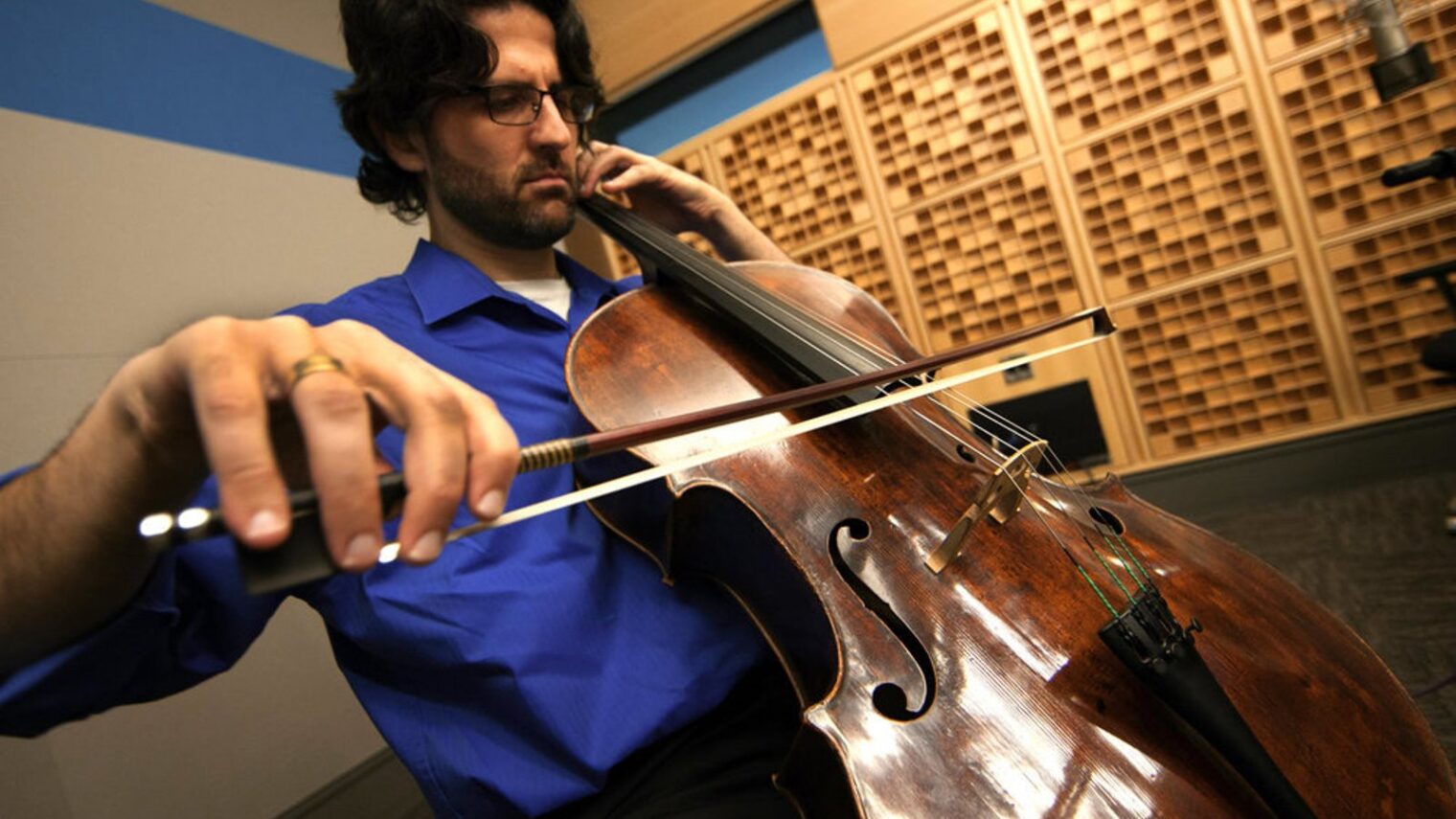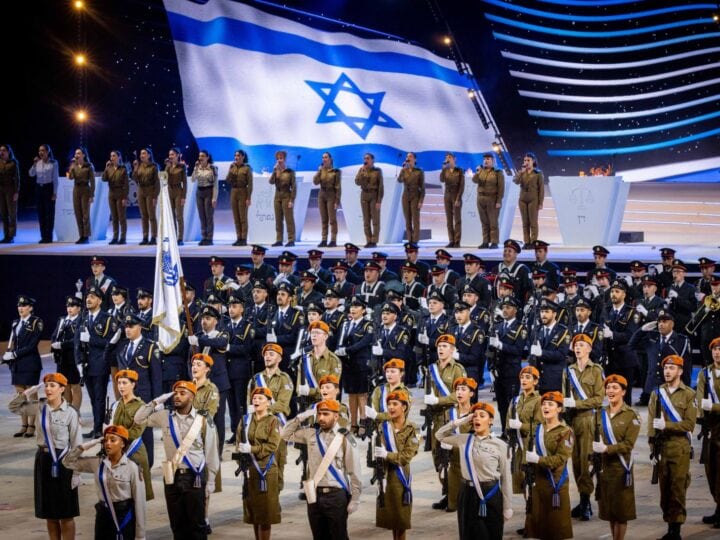‘You’re a big guy and Pablo was small, but if you want to come to my New York apartment you can try his cello,’ Marta Casals told Amit Peled
In August 1973, world-famous cellist Pablo Casals accepted an invitation from then Prime Minister Golda Meir to guest-conduct a youth orchestra in Jerusalem. Though Casals was then nearing 97, he agreed to fly to Israel along with his wife, Marta, and violinists Isaac Stern and Alexander Schneider.
It was the last time Casals took his cello outside of the United States; he passed away two months later. That December, a child was born on Kibbutz Yizre’el who would later be entrusted with Casals’ precious musical instrument and play it in Israel and across the globe.
This summer, Peabody Conservatory Prof. Amit Peled is taking Casals’ vintage 1733 Matteo Goffriller cello on a two-week US recital tour with his wife and three children, ages 11, nine and six. Before that, he’ll teach a master class at a Western Galilee kibbutz.
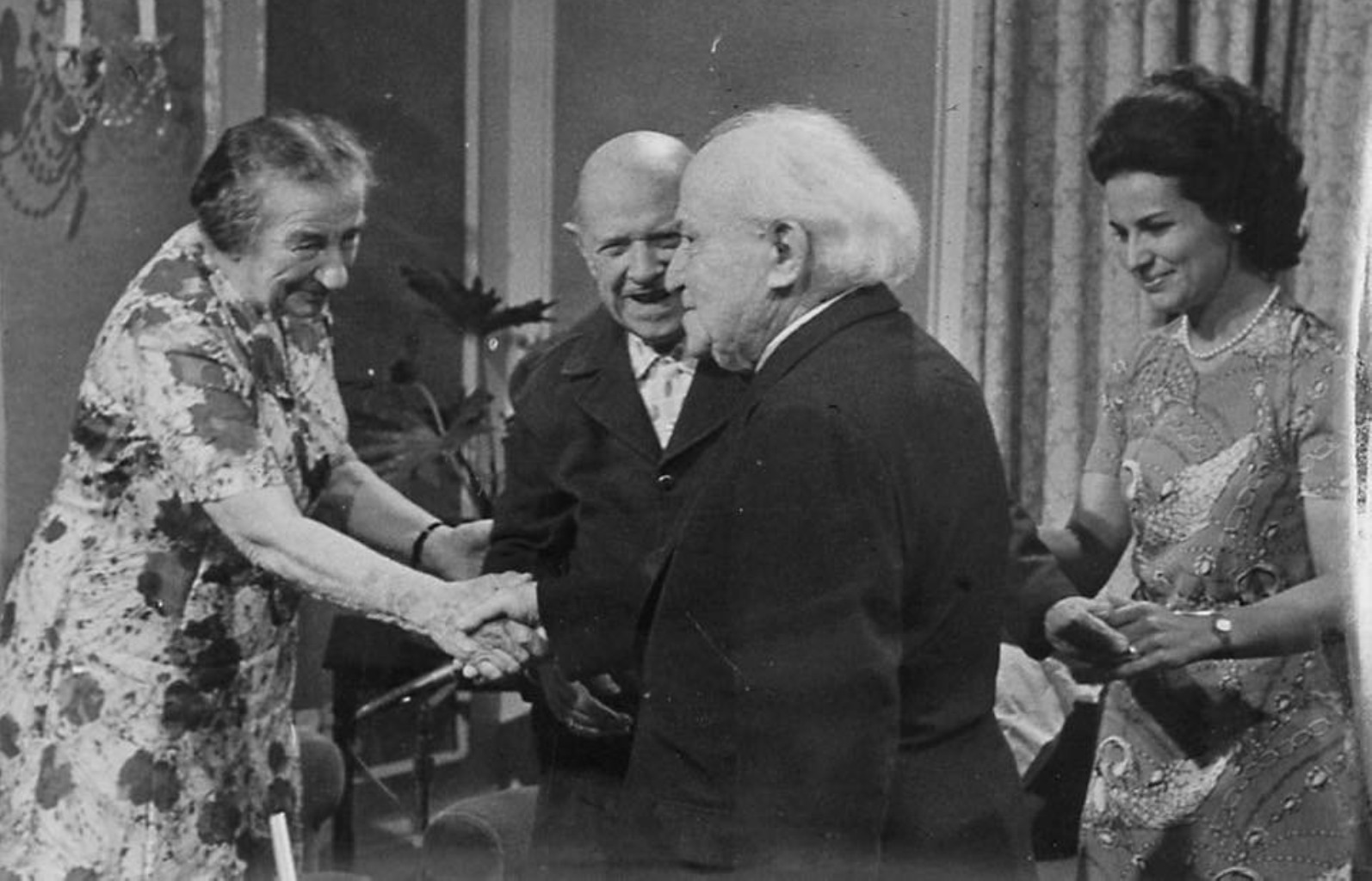
The story of how the grandson of an Israeli turkey farmer grew up to be one of the world’s foremost cellists – and how Marta Casals chose him to make music once again on her husband’s cello – is marked by the hand of destiny, Peled tells ISRAEL21c.
Though his mother played piano and sang, and his farmer grandfather enjoyed playing the violin he received by trading cigarette rations during his World War II service with the Jewish Brigade in Italy, Peled wasn’t brought up to be a professional musician.
“There was music all the time in our house, but nobody told me to continue that tradition,” says Peled, who inherited Grandpa Moshe Bernstein’s violin.
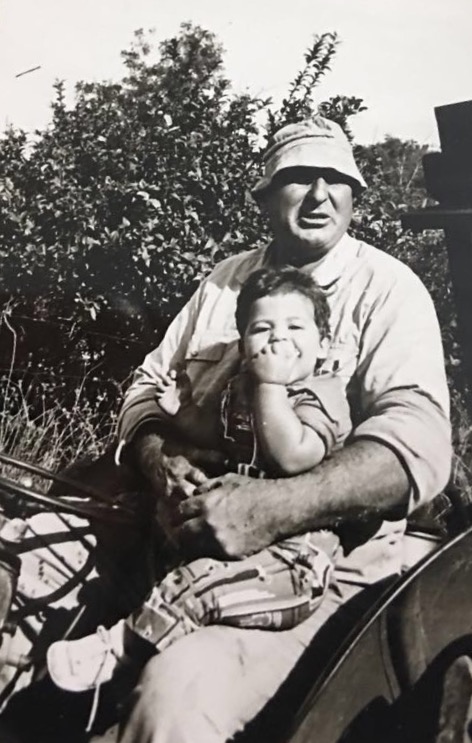
The first track on his first CD, “The Jewish Soul,” is a rendition of the Israeli ballad “Eli, Eli” that his mother often sang.
Tall and athletic, young Amit played rugby and basketball at his kibbutz. However, at age nine he became smitten with a cello-playing 14-year-old girl at school.
“The music room was under our classroom and whenever I’d play basketball I’d sit on the stairs putting on my shoes and listen to her practice. When we all had to pick an instrument in fourth grade, I said I wanted to choose what she was playing, and the music teacher and my parents were shocked.”
The object of his boyhood crush now lives in London with her family, and always attends Peled’s concerts when he’s in town. She’s even taken up cello again.
Four years into his lessons with a beloved teacher who traveled to the Afula-area kibbutz from Haifa, a Tel Aviv flute teacher persuaded the Peleds that their son needed a master teacher. Reluctantly, Amit agreed to trek to his new teacher once a week via three buses, accompanied by a parent.
When Amit was 16, his teacher gave him an ultimatum: cello or basketball. Partly inspired by the music of Casals, he chose cello and stayed on his grandparents’ farm near Netanya during the week so he could take two buses to Thelma Yellin High School of the Arts outside Tel Aviv.
“My grandfather had stopped playing the violin by then, but he loved having a grandson playing the cello. He especially loved listening to Beethoven’s Triple Concerto for violin, cello and piano, and many years later he got to hear me play it in Haifa. If he were alive today to see me playing Casals’ cello that would be incredible.”
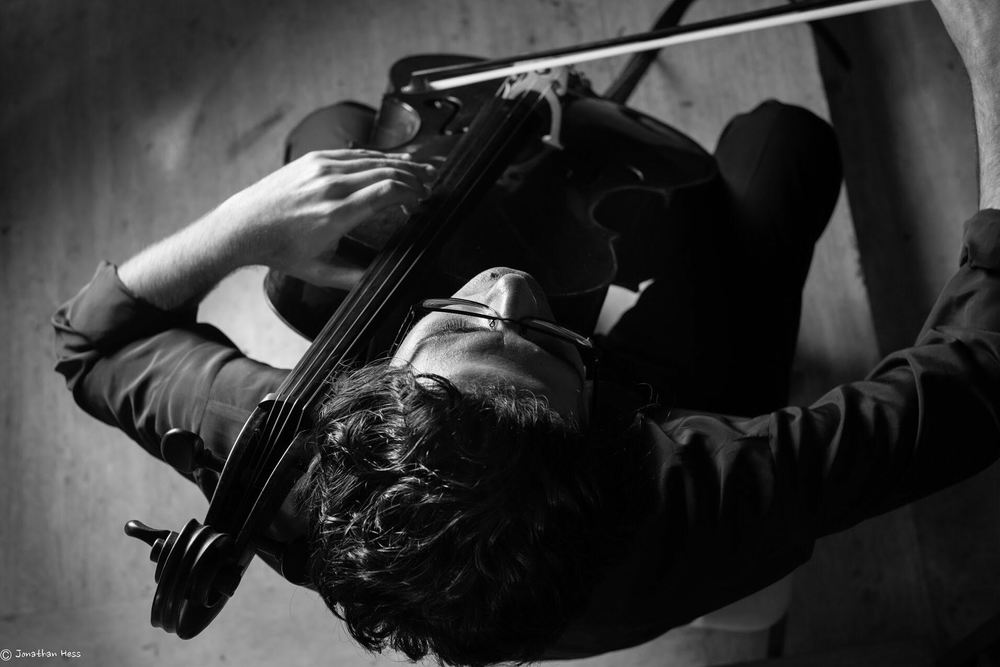
Destiny stepped in once again during Peled’s military service as a member of a string quartet that mostly performed for soldiers and occasionally for dignitaries. The quartet took lessons at the Jerusalem Music Centre, where an instructor visiting from the Yale University School of Music once heard him play.
“He said, ‘The day you finish the army, I’ll be waiting for you with a full scholarship to Yale,’ and that’s what happened.”
Chutzpah pays off
When Peled was about to finish his degree at Yale, he approached Bernard Greenhouse, one of the few students Casals had mentored.
“I used my Israeli chutzpah and called him to say I wanted to find out about his time with Casals, and I wanted him to be my mentor as well. He was so shocked by my directness and said if I come to Cape Cod he’ll teach me for free.”
Peled boarded with a local family in exchange for chores, and for the next three years he studied with Greenhouse, ate dinner with Greenhouse and took walks with Greenhouse.
“Pablo Casals is the ‘grandfather’ of almost every cellist in the world, but my first real physical connection to him was through Greenhouse. Yet I never expected to meet his widow and play his cello,” says Peled.
In 1999, Peled met his future wife at the Marlboro Music Festival in Vermont, where, incidentally, Casals used to teach and Chinese-American cellist Yo-Yo Ma also met his wife. The young couple moved to Berlin, a city in which many of Peled’s former high school and army mates were part of a vibrant music scene.
On a trip to America in 2002, Peled performed at a private concert in Baltimore, Maryland, for supporters of the America-Israel Cultural Foundation prior to his Carnegie Hall debut. In attendance that evening was the dean of the Peabody Conservatory at Johns Hopkins University. She asked the 27-year-old cellist if he enjoyed teaching.
“Again, I used Israeli chutzpah and said ‘I love to teach!’ even though I didn’t spend a single minute teaching in my life,” Peled relates, laughing at the memory.
He gave a sample class, and a year later he was hired after a Peabody cello professor passed away.
“I had never dreamed of becoming a professor,” he says. “I was 28 and we moved to Baltimore with two suitcases and my cello.”
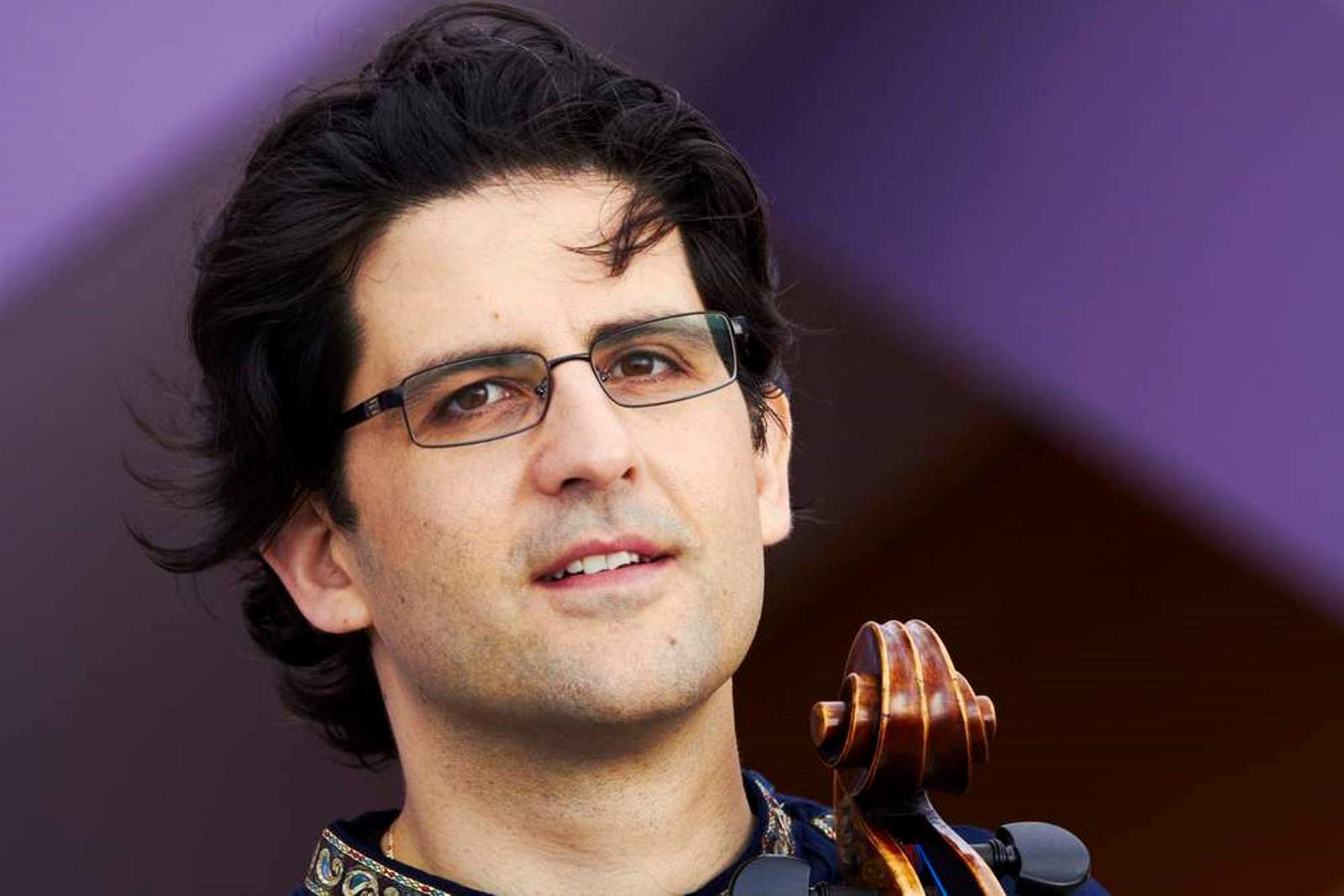
Three years ago, Peled’s friend and student Neale Perl, president of the Washington Performing Arts Society at the Kennedy Center for the Performing Arts in nearby Washington, DC, invited Peled to play for Marta Casals Istomin.
“It was such a great honor to meet her. I came with Neale and a pianist, and she liked our performance. She said, ‘You’re a big guy and Pablo was small, but if you want to come to my New York apartment you can try his cello.’ So I went with Neale and tried it,” recalls Peled.
“When I picked it up and played the first notes I wanted my mother and grandfather to be there. I was in heaven touching the cello of the greatest cellist in the world. A few weeks later, [Marta] emailed me that she’d decided to lend it to me so that I could be the ambassador of his legacy. Until today, I am humbled and scared by this legacy.”
Drive, stop and play
After the long unused cello was restored to its former brilliance, Peled has played the Casals instrument exclusively in his many appearances across the world, including a concert at the Ra’anana Music Center last April.
“My life is in the airport,” he concedes. “In the summer, my wife and kids join me.”
The “Classical Music to Go” tour will begin in Oregon on August 21 and wrap up at Peled’s Baltimore home on September 5. Traveling in a rented SUV with a portable stage and lights, he’ll perform with pianist Stefan Petrov in out-of-the-way places, just as Casals often did.
“We’ll stop at every place we can, and put out chairs,” Peled told The New York Times. “People can follow us to the camping site. Basically, every day we will drive, stop, and play.”
“I always tell my kids and students you always have to go with your gut and do it with all your heart and soul, and if you’re sincere something will come of it,” he tells ISRAEL21c. “That’s also how I’m doing this journey across America to continue the story of Casals.”
Peled is not sure how long he’ll be in possession of the Goffriller cello. “The last time I saw Mrs. Casals, last November, she said, ‘To be continued.’ But I will be happy when they want me to give it to a younger artist because I’ve already shared it with so many people.”
Meanwhile, Peled’s schedule is booked for the next two years. In 2017, he plans to appear with the Jerusalem Symphony Orchestra playing the Dvorak Cello Concerto that Casals recorded in 1928.
In Israel, he and his family enjoy spending time with his parents on the kibbutz and with his two sisters in the North; a third sister is an artist in Los Angeles.
“For me to have a connection to Israel is so important. My kids all speak Hebrew but they are growing up in Baltimore and it’s always nice to come home.”
For more information, click here




